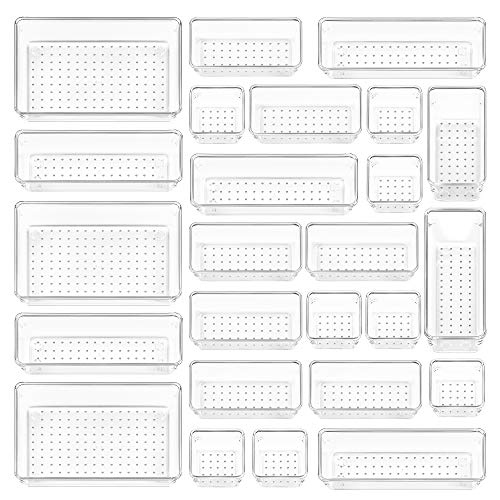Originally Posted by
chinadoll /img/forum/go_quote.gif I've read too much bad stuff about Accutane. I would get off it if you can ASAP. I wouldn't say that - if she was prescribed it's because her pimples are bad enough to need it. Accutane isn't a thing to play with - no responsible doctor prescribes it for a breakout with 1 or 2 pimples - it's for severe acne. Plus, the only person who can say you should drop a medicine is the doctor, not anybody else.
Here's some info from Wikipedia.
Pharmacodynamics
Isotretinoin noticeably reduces the production of
sebum and shrinks the
sebaceous glands. It stabilizes
keratinization and prevents
comedones from forming. The exact
mechanism of action is unknown, however it is known that like other
retinoids, Isotretinoin works by altering
DNA transcription.
[4] This effect decreases the size and output of sebaceous glands, makes the cells that are sloughed off into the sebaceous glands less sticky, and therefore less able to form comedones.
Indications
Isotretinoin is indicated for the treatment of severe cystic
acne vulgaris.
[5][6] It is also effective for
hidradenitis suppurativa and some cases of severe
acne rosacea.
[6] It can also be used to help treat
harlequin ichthyosis, and is used in
xeroderma pigmentosum cases to relieve
keratoses.
Although exremely rare, isotretinoin has been used as a treatment for Fibrodysplasia Ossificans Progressiva.
Prescribing restrictions
In the United Kingdom, this drug may only be prescribed by, or under the supervision of, a consultant
dermatologist.
[7] A similar situation exists in most
Australian states – in
New South Wales, for instance, the prescriber must be a
Fellow of the Australasian College of Dermatologists (FACD).
[8]
Since
1 March 2006, the dispensing of isotretinoin in the United States has been controlled by a
FDA-mandated website called
iPLEDGE – dermatologists are required to register their patients before prescribing and pharmacists are required to check the website before dispensing the drug. Doctors may not prescribe more than a 30-day supply. A new prescription may not be written for at least 30 days. Pharmacies are also under similar restriction. There is also a 7-day window in which the medication must be picked up at the pharmacy. If the original prescription is lost, or pick-up window is missed, the patient must wait 30 days without any medication. Doctors and pharmacists must also verify written prescriptions in an online system before patients may fill the prescription.
Preparations
Isotretinoin is marketed under many brand names by various manufacturers. It is typically available as 5 mg, 10 mg, 20 mg, 30mg and (in the USA) 40 mg capsules. Some brands of oral isotretinoin include:
Accure (
Alphapharm),
Accutane and
Roaccutane (
Roche),
Aknenormin (
Hermal),
Amnesteem (
Mylan),
Ciscutan (
Pelpharma),
Claravis (
Barr),
Isohexal (
Hexal Australia),
Isotroin (
Cipla),
Oratane (
Douglas Pharmaceuticals), and
Sotret (
Ranbaxy).
It is also available as a 0.05%
topical preparation, marketed by
Stiefel under the trade name
Isotrex or
Isotrexin (with
erythromycin).
Adverse effects
Increasingly higher dosages will result in higher toxicity, resembling vitamin A toxicity.
Adverse drug reactions associated with isotretinoin therapy include:
[5]
- Common: mild acne flare, dryness of skin, lips and mucous membranes, infection of the cuticles, cheilitis, itch, skin fragility, skin peeling, rash, flushing, photosensitivity, nose bleeds, dry eyes, eye irritation, conjunctivitis, reduced tolerance to contact lenses, hyperlipidaemia, raised liver enzymes, headaches, hair thinning, myalgia and/or arthralgia.
- Infrequent: severe acne flare, raised blood glucose level, increased erythrocyte sedimentation rate, fatigue.
- Rare: impaired night vision, cataracts, optic neuritis, menstrual disturbances, inflammatory bowel disease, pancreatitis, hepatitis, corneal opacities, papilloedema, idiopathic intracranial hypertension, skeletal hyperostosis, extraosseous calcification, and it is believed that severe depression can occur, although there is no conclusive evidence for this.
The following adverse effects have been reported to persist, even after discontinuing therapy:
alopecia (hair loss), arthralgias, decreased night vision,
degenerative disc disease,
keloids, bone disease. High dosages of isotretinoin have been reported to cause
rosacea (a disease of severe facial skin redness and irritation).While
vitamin E supplements have been advocated by some to reduce the toxicity of high-dose retinoids without reducing drug efficacy, test results have proven this to be false.
[12]
Patients receiving isotretinoin therapy are not permitted to donate blood during and for at least one month after discontinuation of isotretinoin therapy due to reported birth defects to unborn children.
Teratogenicity
Isotretinoin is a
teratogen and is highly likely to cause birth defects if taken during pregnancy. Isotretinoin is classified as
FDA Pregnancy Category X and
ADEC Category X, and use is contraindicated in pregnancy.
[6]
The manufacturer recommends that pregnancy be excluded in female patients two weeks prior to commencement of isotretinoin, and that they should use effective contraception (sometimes two simultaneous forms are recommended) at least one month prior to commencement, during, and for at least one month following isotretinoin therapy.
[13]
In the
U.S. more than 2,000 women have become pregnant while taking the drug between 1982 and 2003, with most pregnancies ending in
abortion or
miscarriage. About 160 babies with birth defects were born. Consequently, the
iPLEDGE program was introduced by the U.S.
Food and Drug Administration on
12 August 2005 in an attempt to ensure that female patients receiving isotretinoin do not become pregnant – as of
1 March 2006, only prescribers registered and activated in iPLEDGE are able to prescribe isotretinoin, and only patients registered and qualified in iPLEDGE will be able to have isotretinoin dispensed.
Depression
Several studies have suggested a possible link between isotretinoin and
clinical depression.
[14][15] However, no conclusive evidence has been produced. Despite this, the argument that isotretinoin caused depression and suicide has won a few lawsuits, and is partially responsible for the strict control of the drug, especially in the US. Various case reports of depression, suicidal ideation, suicide attempt, and suicide in patients treated with isotretinoin have been reported to the U.S. FDA Adverse Events Reporting System, with 431 cases reported between 1982 and May 2001 – of these 37 patients had committed suicide.
[16] While analyses have suggested an association between isotretinoin therapy and depression, no causal relationship has been established and further studies are required.
[17][18]
Studies have shown that patients with acne, the population group eligible to receive isotretinoin therapy, have an increased risk of clinical depression compared with the general population.
[19][20] Chee Hong describes Isotretinoin-related depression as "an
idiosyncratic side-effect", claiming, often anxiety can bring on acne and depression, creating more anxiety.
[21] Correspondingly, treatment of severe acne with Isotretinoin has been shown to reduce anxiety and depression, for tests have shown acne to be a main depressant in most tested patients' lives.
[22][23]
One study utilising
positron emission tomography (PET) showed functional brain imaging changes in patients treated with isotretinoin, however the clinical relevance of this finding is unclear.
[24]
U.S. Representative
Bart Stupak (D-MI) is known for his distrust of Accutane. He believes unadvertised psychological side effects from the drug drove his teenage son, Bartholomew Thomas "B.J" Stupak Jr., to commit suicide in
2000.
Drug interactions
The concurrent use of isotretinoin with
tetracycline antibiotics or
vitamin A supplementation is not recommended. Concurrent use of isotretinoin with tetracyclines significantly increases the risk of
idiopathic intracranial hypertension. Concurrent intake of
Vitamin A supplementation increases the risk of vitamin A toxicity.
[6]
Concurrent use of isotretinoin with
methotrexate increases the risk of
hepatotoxicity and may increase methotrexate levels. The combination is used with caution and close monitoring of adverse effects and
liver function tests.
[5]
Isotretinoin - Wikipedia, the free encyclopedia






































